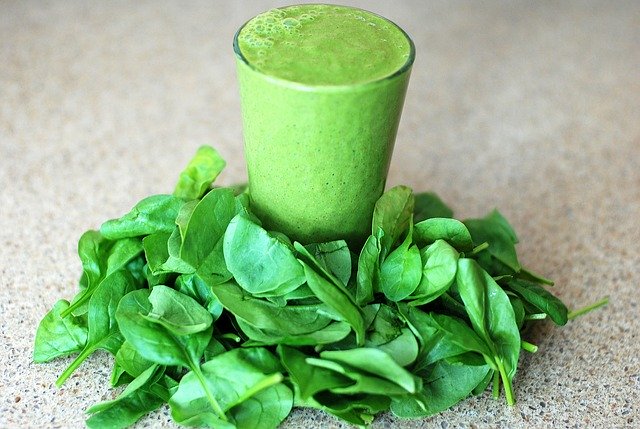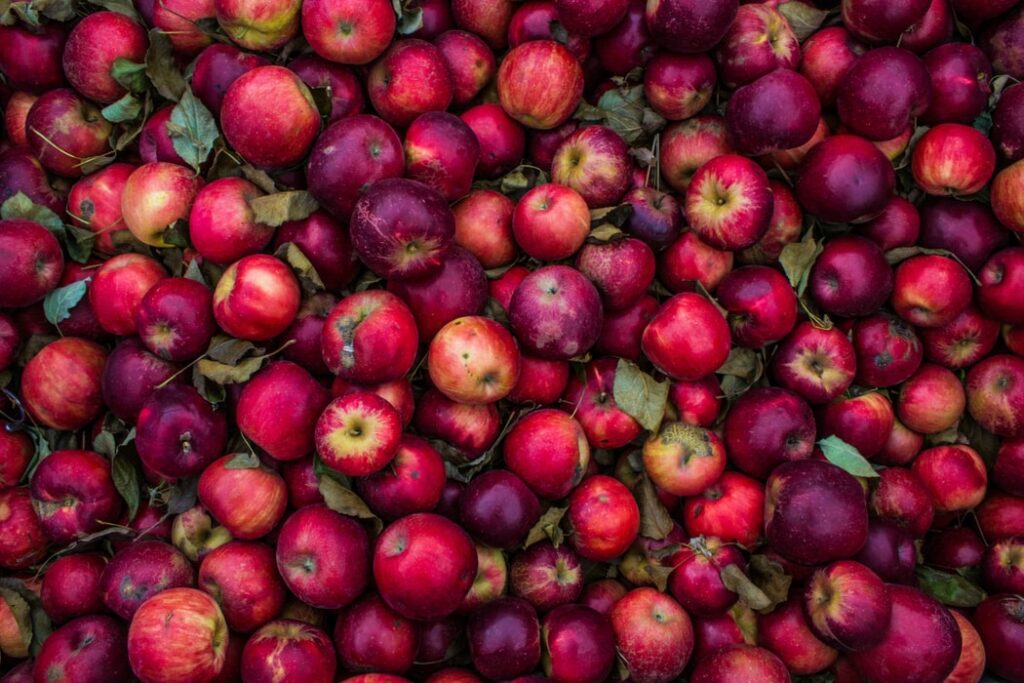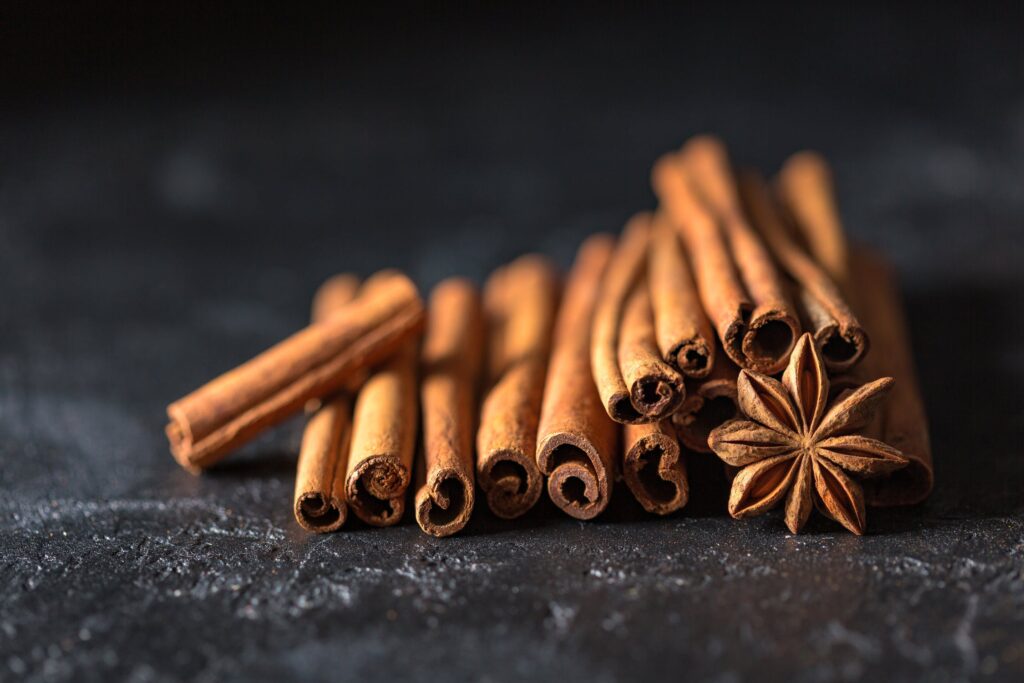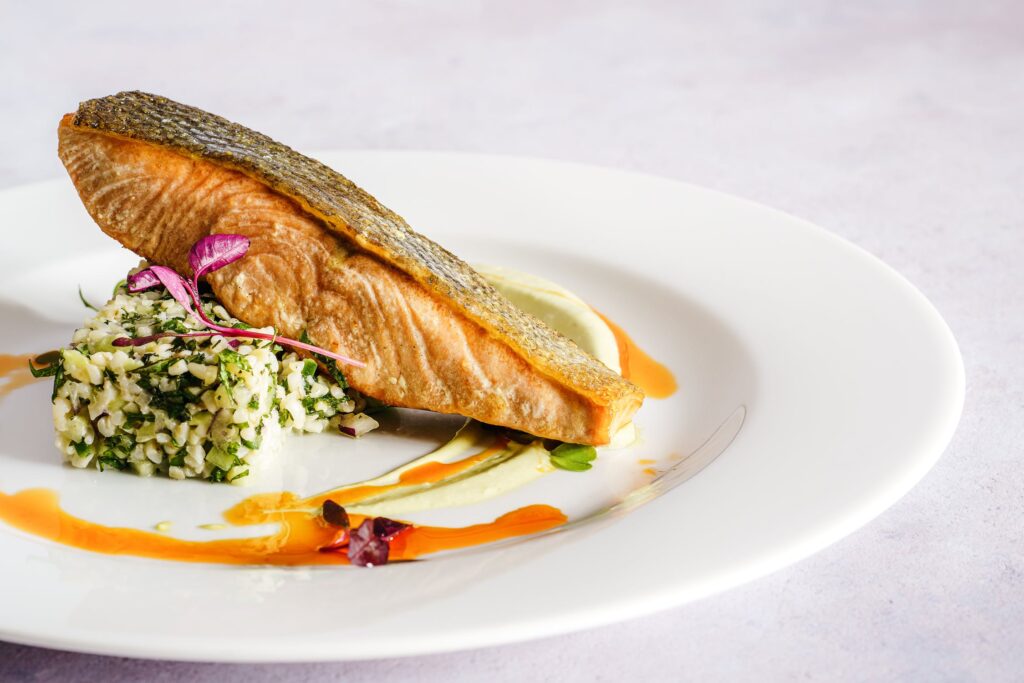
table, td, tr { white-space: normal!important;}
Nearly 2 million Americans are diagnosed with some form of cancer each year, and more than half a million of those individuals ultimately lose their battle with the illness. While there are many factors that affect cancer risk, our lifestyle choices can play a huge role. Exercising regularly, limiting your sun exposure, and quitting unhealthy habits like smoking and drinking too much alcohol are great ways to protect your overall health and reduce your odds of developing cancer. Perhaps most important in warding off the risk of this disease is eating a more nutritious diet — especially one containing foods that have been scientifically proven to prevent or even fight cancer.
There are many healthy (and delicious!) foods filled with compounds that have been cited by multiple sources as having cancer-fighting abilities. They’re great additions to most diets because of their outstanding nutrition, but be sure to consult your doctor before making any major dietary changes. Once your physician gives you the green light to load up on these fruits, vegetables, and other tasty and healthful foods, give our foodie-favorite recipes a taste, or experiment with your own culinary creations.
Keep in mind that many of these foods are still being tested to determine the exact ways and extent to which they help prevent cancer from developing or spreading. To learn more about their cancer-fighting properties, we’ve included some great resources for further reading at the end of this guide.
|
Cancer-fighting Food |
Serving Size* |
Recipes to Try |
|
Apples |
1 medium apple, 95 calories |
|
|
Beans, Lentils, and Legumes |
1 cup beans, 100 - 200 calories (depending on variety); 1 cup cooked lentils, 230 calories; calorie content of legumes varies widely depending on variety |
|
|
Brightly-colored Berries |
½ cup fresh, 50 - 85 calories (depending on variety) |
|
|
Carrots |
½ cup fresh, 25 calories |
|
|
Cinnamon |
1 tbsp. ground, 20 calories |
|
|
Citrus Fruits |
1 cup, 50 - 85 calories (depending on variety) |
|
|
Cruciferous Vegetables |
1 cup fresh/uncooked, 10 - 35 calories (depending on variety) |
|
|
Dark Chocolate |
1 oz. plain dark chocolate, 155 calories or more (depending on cacao content and other additives) |
|
|
Dark Leafy Greens |
1 cup fresh/uncooked, 10 - 20 calories (depending on variety) |
|
|
Fatty Fish |
3 oz. fresh/cooked, 110 - 155 calories (depending on variety) |
|
|
Flaxseed |
1 oz., 150 calories |
|
|
Garlic |
1 clove fresh, 5 calories |
|
|
Grapes |
1 cup, 60 - 100 calories (depending on variety) |
|
|
Green Tea |
1 cup brewed, 5 calories |
|
|
Olive Oil |
1 tbsp., 120 calories |
|
|
Squash |
1 cup fresh, 30 - 65 calories (depending on variety) |
|
|
Tomatoes |
1 cup fresh, 30 calories |
|
|
Turmeric |
1 tbsp. powdered, 30 calories |
|
|
Walnuts |
1 oz. without shells, 185 calories |
|
|
Whole Grains |
Varies widely depending on product |
*Serving sizes and calorie counts are approximate

Apples
An apple a day really can keep the doctor away. This fruit contains polyphenols, which have been shown to reduce the risk of heart disease and other illnesses thanks to their anti-inflammatory properties. Some polyphenols also block the chemicals that feed cancer tumors the compounds they need to grow, so they may be able to slow the rate at which it spreads.
Recipes to Try: Apple Nachos, Harvest Chicken Skillet Dinner, Healthy Apple Crisp
Beans, Lentils, and Legumes
Small but powerful, beans, lentils, and legumes contain folate as well as fiber, which studies indicate can ward off breast cancer. They also have cell-protecting phytochemicals that may help slow the growth and spread of unhealthy tumors.
Recipes to Try: Linguine with Italian Tuna and White Beans, One-pot Vegetables and Lentils, Succotash Salad
Brightly-colored Berries
Blueberries, raspberries, cranberries, strawberries, and blackberries (just to name a few!) contain fiber and antioxidant-rich components, which may help slow cancer cells’ ability to grow. Fresh and frozen varieties pack the most nutritional punch, but if you enjoy them cooked or dried, look for ways to prepare them that don’t require a lot of added salt or sugar.
Recipes to Try: Blueberry Sweet Potato Breakfast Salad, Warm Smashed Blackberry and Goat Cheese Toast, Grilled Salmon with Blueberry Sauce
Carrots
Carrots are great for way more than eye health. They contain beta-carotene, which strengthens the body’s immune system, a critical defense against cancer development.
Recipes to Try: Carrot Ginger Soup, Carrot Socca Cakes, Sweet-and-sour Carrots

Cinnamon
Cinnamon has anti-inflammatory powers, making it a healthy spice to add to sweet and savory dishes alike. It has also been shown to reduce the size of cancer cells and the rate at which they spread.
Recipes to Try: Turkey Apple Breakfast Hash, Indian Chicken Curry, Cinnamon Chipotle Spiced Popcorn
Citrus Fruits
Don’t be shy about indulging in your favorite citrus fruits, whether you like to snack on oranges or grapefruits or add fresh lemon or lime juice to your water. Across several different studies, citrus has been shown to help reduce the risk of multiple types of cancer.
Recipes to Try: Pan-seared Tilapia with Grapefruit-avocado Salsa, Healthy Orange Chicken Stir Fry with Coconut Cauliflower Rice, 3-Minute Key Lime Pudding
Cruciferous Vegetables
Veggies like broccoli, Brussels sprouts, cauliflower, and bok choy do more than add color and texture to dishes. In addition to folate, these superfoods contain sulforaphane, which studies have shown can reduce the size and number of cancer tumors in the body.
Recipes to Try: Roasted Cauliflower Steaks with Chimichurri Sauce, Cajun Roasted Broccoli Bowl, Warm Quinoa Brussels Sprouts Salad
Dark Chocolate
Dark chocolate containing a level of at least 70 percent cacao has polyphenols, a powerful antioxidant. It also has catechins, which have been linked to lowered cancer risk as well as reduced rates of stroke and heart disease.
Recipes to Try: Dark Chocolate Hummus, Spicy Tomato Chocolate Soup, Slow Cooker Chocolate Chicken Mole
Dark Leafy Greens
Romaine lettuce, kale, spinach, chard, and other dark leafy greens are a staple in any healthy diet, including cancer-prevention plans. They contain folate, fiber, and carotenoids, all of which may be helpful in reducing an individual’s risk of cancer.
Recipes to Try: Grilled Romaine Salad with Creamy Avocado-basil Dressing, Low-carb Curried Turkey Spinach Meatballs, Garlic Tilapia with Spicy Kale
Fatty Fish
Fatty fish, such as fresh salmon, sardines, and mackerel, are a popular addition to many healthy-eating plans, including the Mediterranean diet, and they’ve been linked to reduced cancer rates. They’re packed with nutrients, including anti-inflammatory omega-3 fatty acids, cell-boosting vitamin B, and muscle- and bone-strengthening potassium.
Recipes to Try: Easy Baked Lemon Dijon Salmon, Smoked Mackerel and Giant Couscous Salad, Moroccan-baked Whole Sardines Recipe

Flaxseed
Flaxseed is loaded with fiber and healthy fats, making it a small but mighty addition to salads, smoothies, and savory entrees. In different studies, it has been shown to shrink, reduce the spread of, and even destroy cancer cells.
Recipes to Try: Flaxseed-crusted Salmon and Spinach Salad, Flaxseed Twisty Sticks, Basmati Rice with Flaxseeds and Garbanzo Beans
Garlic
Whether you use the exact amount your favorite recipes call for or firmly believe there’s no such thing as too much garlic, enjoying this ingredient has powerful cancer-fighting abilities. It contains allicin, which has been shown to lower the risk of certain types of cancer and even kill cancer cells.
Recipes to Try: Roast Chicken Legs with Lots of Garlic, Tomato-garlic Lentil Bowls, Foil-baked Lemon-garlic Fish and Asparagus
Grapes
While white grapes have plenty of health benefits, red grapes are especially helpful in cancer prevention. They contain resveratrol, which has antioxidants and anti-inflammatory abilities that help strengthen the body’s ability to fight off illness.
Recipes to Try: Grape Pico de Gallo, Sauteed Chicken with Roasted Grapes and Onions, Salad with Red Grapes and Feta
Green Tea
Green tea has antioxidants that some studies have shown to prevent or slow the growth of cancer cells. You can reap its health-boosting powers by brewing it or using powdered leaves in dishes.
Recipes to Try: Almond-matcha Green Smoothie Bowl, Green Tea Smoked Chicken, Miso-glazed Eggplant with Green Tea Rice
Olive Oil
Olive oil is often recommended as part of a healthy diet, like the Mediterranean diet, because it’s a healthy, plant-based fat. It’s also been shown to have powerful cancer-prevention properties across several studies. In order to enjoy the most benefits, eat it raw, like by drizzling it on salad or bread. If you use it while cooking, don’t heat it to higher than 240 degrees Fahrenheit — any type of oil cooked at higher heats may produce carcinogens.
Recipes to Try: Greek Kale Salad with Lemon Olive Oil Dressing, Toasted Garlic Olive Oil Bread Dip, Oil-poached Halibut with Fennel, Tomatoes, and Mashed Potatoes
Squash
Zucchini is the squash variety that seems to get all of the glory when it comes to health benefits and versatility, but varieties with orange flesh, like acorn, butternut, pumpkin, and spaghetti, have cancer-fighting benefits. They contain beta-carotene and other types of carotenoids, which when eaten regularly, can help reduce the risk of cancer.
Recipes to Try: Summer Squash Tacos, Apple-butternut Squash Soup, Spaghetti Squash Boats with Chicken Marinara
Tomatoes
Scientists aren’t sure if it’s lycopene or other nutrients that are responsible for tomatoes’ seeming ability to ward off cancer, but multiple studies indicate it can help prevent different forms of the disease. Eat them fresh, cooked, or in sauce or juice to enjoy their health perks, but try not to add too much salt, sugar, or dairy to them in order to receive maximum benefits.
Recipes to Try: Homemade Roasted Garlic Tomato Sauce, Tomato Gazpacho, Stewed Tomato and Chicken Skillet
Turmeric
Turmeric has been used in Asian and Indian cuisine for centuries, but its deep flavor and bright, golden color has made it a popular addition to many foodie favorites in recent years. It’s also got significant health benefits. This spice contains curcumin, which may help prevent cancer cells from mutating and spreading.
Recipes to Try: Wild Blueberry Turmeric Zinger Smoothie, Persian Chicken with Turmeric and Lime, Lentil Turmeric Detox Soup
Walnuts
Walnuts have become a superfood in their own rite in the last several years, thanks to their healthy-fat content and versatility in all kinds of recipes. If that weren’t enough to make you go nuts over them, they also may help ward off cancer. They contain pedunculagin, which helps the body produce urolithins, compounds that may help prevent certain types of diseases, including breast cancer.
Recipes to Try: Lentil Walnut Tacos, Roasted Orange Citrus Halibut with Walnut-pomegranate Relish, Dessert Spaghetti Squash with Apples, Walnuts, and Cinnamon Goat Cheese
Whole Grains
If you haven’t made the switch from bleached-flour products yet, whole grains’ cancer-fighting powers may convince you to make the leap. They contain high amounts of folate and fiber, which can protect against certain types of cancer. Look for recipes with any of these whole grains:
|
Amaranth |
Freekeh |
Wheat berry |
|
Barley |
Millet |
Whole-grain bread |
|
Brown rice |
Oats |
Whole-grain corn |
|
Buckwheat |
Quinoa |
Whole-grain couscous |
|
Bulger |
Sorghum |
Whole-grain einkorn |
|
Farro |
Spelt |
Whole-grain pasta |
|
Fortified sugarless cereal |
Teff |
Wild rice |
Recipes to Try: Butternut Squash with Quinoa, Spinach, and Walnuts, Collard Green Creole Dirty Rice, Chicken & Farro Herb Salad

Foods to Avoid to Help Reduce Your Cancer Risk
Boosting your intake of fare that may lower your cancer risk is a great way to ward off illness. Just as important is avoiding the food and beverages that may increase your odds of being diagnosed with the disease. While you don’t have to completely give up the foods below, it’s important to know that they’ve been tied to increased cancer rates, so try to indulge in them minimally:
|
Alcohol |
Hot dogs |
Soda |
|
Bacon |
Lamb |
Trans fats / Hydrogenated oil |
|
Beef |
Pork |
Veal |
|
Deli meat |
Sausage |
White sugar / Refined sugar |
There are a lot of factors that can increase our risk of developing cancer. Unfortunately, some of them are out of our control, including genetics and exposure to chemicals and materials that scientists aren’t yet aware are dangerous. The good news is that there are a lot of actions we can take to help prevent the illness and its spread. Eating more foods that have been scientifically shown to reduce cancer rates is a wonderful way to stay healthy and show off your foodie skills by using them in delectable recipes.
Further Reading
To learn more about the relationship between food choices and cancer, we suggest reading these articles, all of which helped inform this guide:
- American Institute for Cancer Research (AICR)'s Foods that Fight Cancer and Foods to Steer Clear Of, Explained
- Everyday Health’s 10 Foods that Help Fight Cancer
- Healthline’s 13 Foods that Could Lower Your Risk of Cancer
- HelpGuide’s Cancer Prevention Diet
- Live Science’s Top 10 Cancer-fighting Foods
- Medical News Today’s The Best Cancer-fighting Foods
- WebMD’s Top Cancer-fighting Foods
